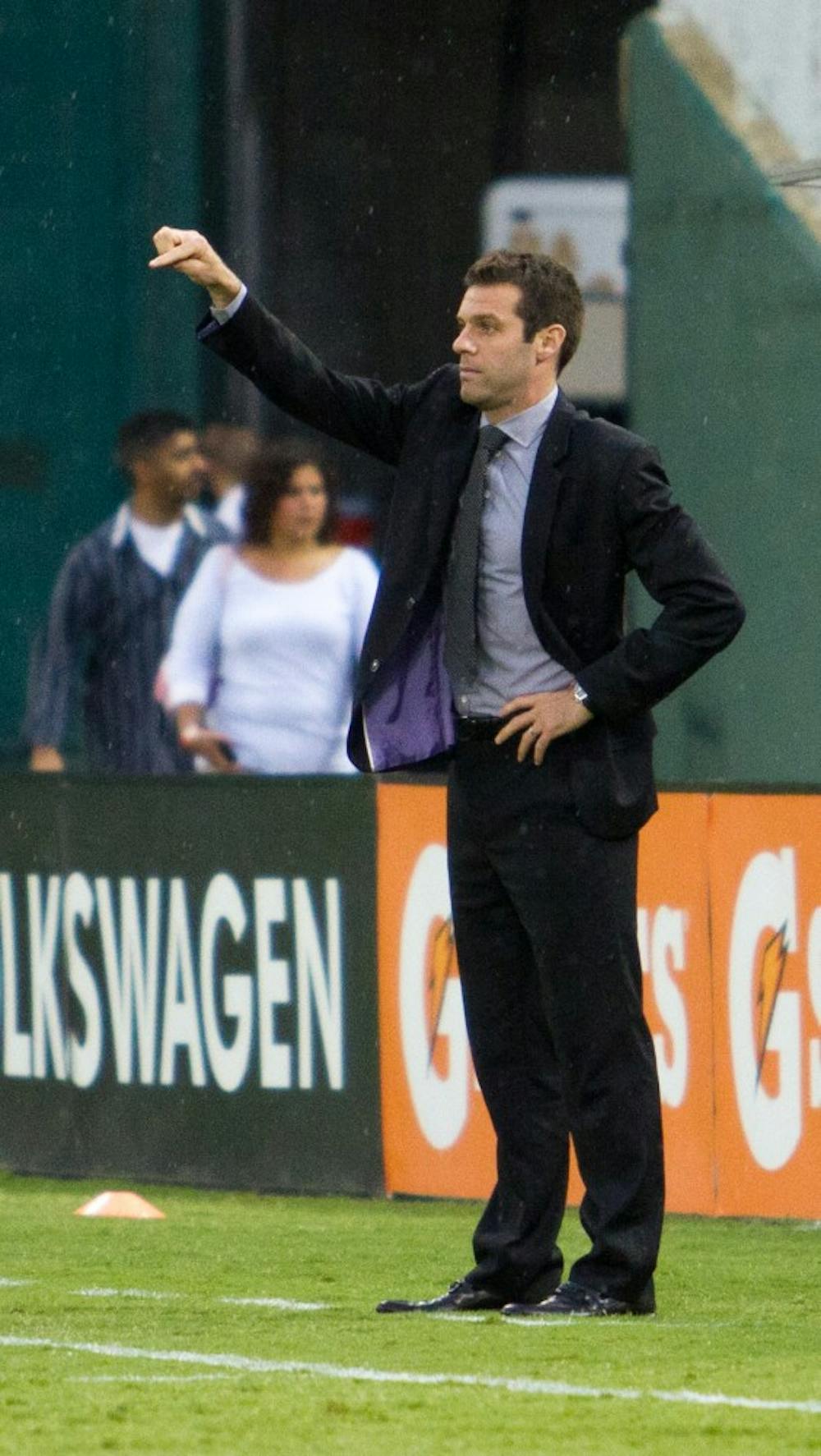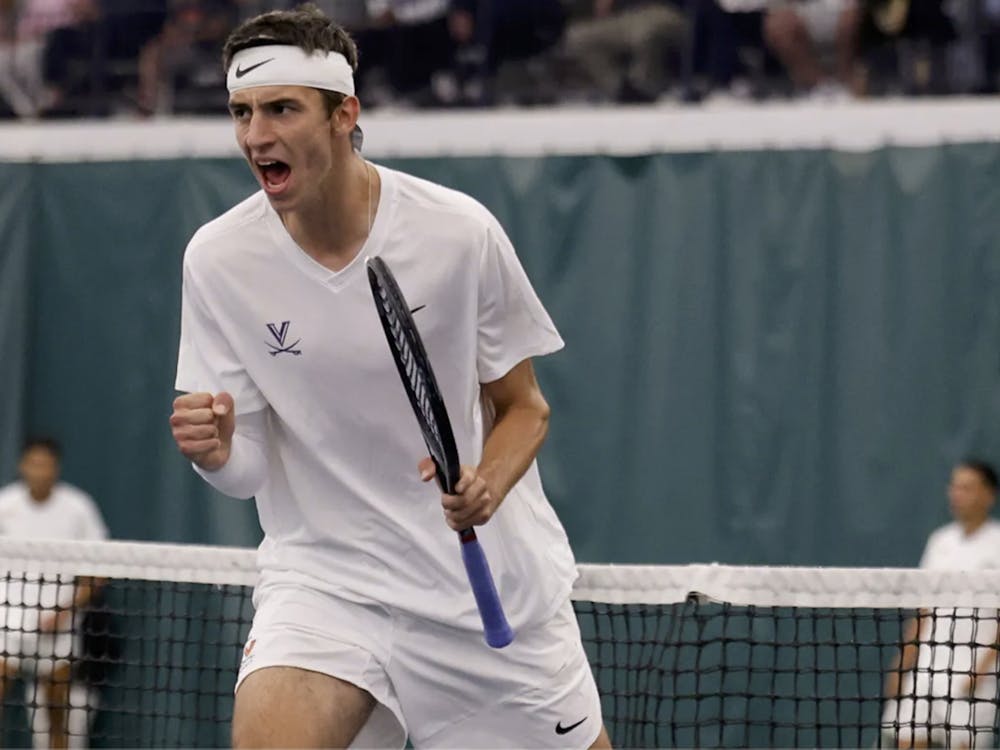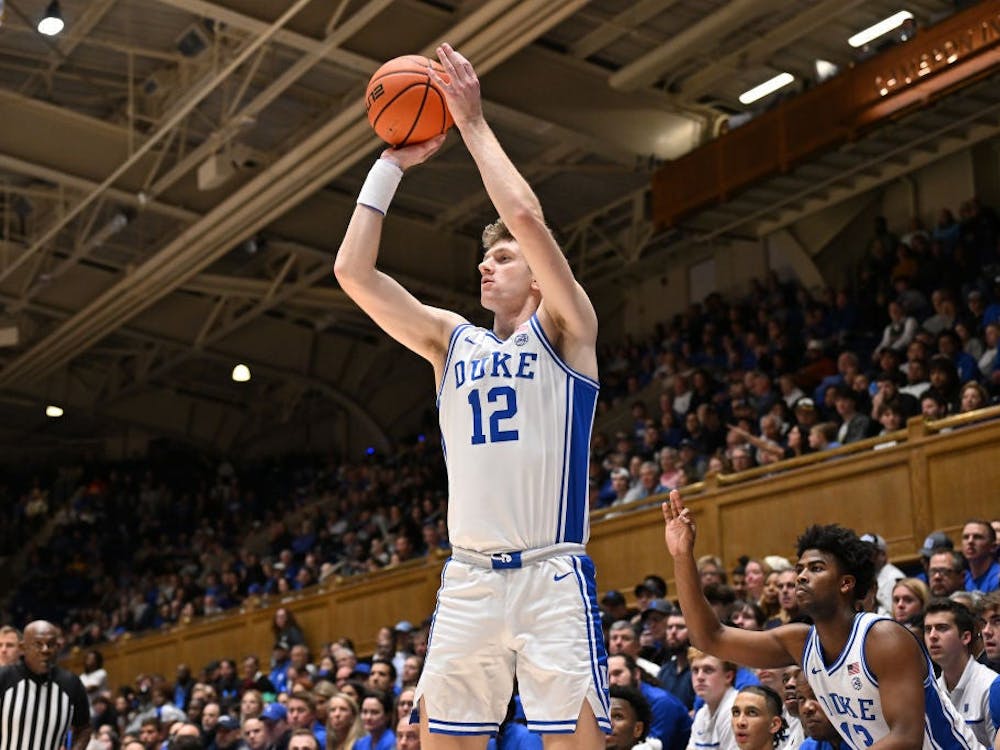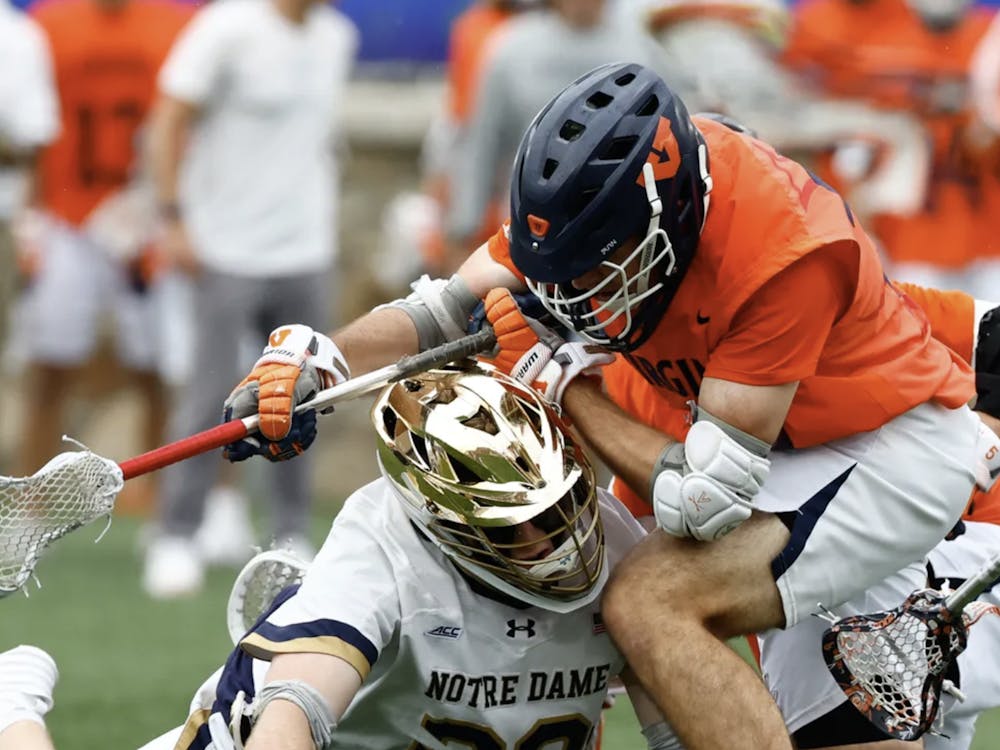WASHINGTON, D.C.—In the same way he might reminisce about his morning meal, Ben Olsen discusses defeat.
Though the 36-year-old former Virginia star and current D.C. United coach has just watched his last-place team commit a litany of self-inflicted maladies in an ugly 3-0 home loss to the Chicago Fire, his postmortem invokes measured optimism. He stops short of absolving his players of their defensive lapses and offensive profligacy but commends a lineup consisting of a mishmash of reserves and untested youngsters for battling the Fire’s first team.
“I think there’s going to be a lot of good stuff to build on,” Olsen said.
United, in this scenario, was the little guy gritting and toiling his way to a moral victory but falling short of perfection. Olsen can relate.
“I have a bit of a small man’s complex, I believe,” Olsen said.
——-
All in all, you can count on one hand the number of Cavaliers whose collegiate careers rival that of Olsen’s.
“I would say he’s among the top guys that I have coached,” said Virginia head coach George Gelnovatch, who had Olsen for two years. “When you take the whole package, he’s a special guy. And maybe the most special in terms of not just the soccer part, but the personality, the heart, the leadership.”
Olsen’s appraisal of the same college career?
“I screwed it all up,” he said. “Once I got there, we didn’t win anything.”
Upon arriving at Virginia in 1995 as a former nationally-renowned standout in Middletown, Pa., Olsen quickly established himself as the kind of scrappy midfielder whose game exceeded the sum of its parts. 5’8” and wiry, he said he adopted his trademark tenacious style to contend with more physically imposing opponents
“I wasn’t good enough to not play every play hard,” Olsen said. “I wasn’t physical enough to not go in 100 percent on tackles and fight and work my tail off. I think some people were drawn to that.”
Matt Chulis, Olsen’s roommate and teammate at Virginia and the program’s current Associate Head Coach, put it another way.
“He’s the guy who the other team wanted to kill,” Chulis said.
Blending this grit with what Gelnovatch called an “awesome personality,” Olsen distinguished himself in the program’s most talent-fertile era. A dangerous sidekick to two-time Hermann Trophy winner and fellow midfielder Mike Fisher in 1995 and 1996, Olsen exploded for 54 points and the Soccer America Player of the Year award in 1997.
However, the accolade Olsen most craved eluded him.
In each of the four years preceding Olsen’s arrival, Virginia earned national championships, but the teams Olsen and Chulis led never broke through, coming agonizingly close with a 2-0 defeat to UCLA in the 1997 championship game.
“To say it doesn’t bother me every day,” Chulis said. “…I’d be lying to you.”
——
Things broke at Nottingham Forest’s City Ground, on March 7, 2001.
Olsen had already set the MLS aflame as an incendiary wide midfielder, winning the 1998 Rookie of the Year and the 1999 MLS Cup MVP on a D.C. United team that included former Virginia head coach Bruce Arena and Cavalier alumni midfielder John Harkes and defenseman Jeff Agoos.
Now, he was thriving on loan at England’s Nottingham Forest F.C., tipped both for permanent transfer to the club and a prevalent U.S. national team role in the run-up to the 2002 World Cup. And that’s when, in a home fixture with Barnsley, Olsen’s right ankle shattered. He missed 18 months of action, never again played in Europe and endured incessant ankle ailments until his retirement in July 2009.
“It set him back,” Chulis said.
Disappointed but resolute, Olsen tinkered with his game. An explosive winger before the injury, he became a cerebral, more central-playing midfielder when he returned to the pitch in July 2002.
“I couldn’t cover the ground that I used to, so I had to use my brain for the first time,” Olsen said. “I enjoyed playing the game of soccer, after my injuries, more. Because I understood the game, and I wasn’t as inconsistent.”
In the seasons ensuing from the ankle fracture, Olsen would entrench himself as one of United’s most celebrated players — and realize a childhood fantasy. He helped the team snag the 2004 MLS Cup and 2006 and 2007 Supporters Shields for best MLS regular-season record, all sandwiched around the “pinnacle” of his career — a 50 minute cameo in place of fellow Virginia star Claudio Reyna in the U.S. National Team’s 2006 World Cup.
An ankle fell apart that day at the City Ground, along with dreams for the dazzling career Olsen’s early excellence portended. Olsen himself refused to.
“When you’re missing a World Cup after that, you’re in a cast, sometimes you start to feel sorry for yourself,” Olsen said. “Looking back now, I wouldn’t have changed it for anything. I don’t regret it one bit.”
——
Olsen’s rugged savvy and unwavering loyalty endeared him to United for more than a decade, which has made this year that much harder.
A year removed from an Eastern Conference Finals appearance, D.C. United has languished through an abysmal league campaign in which it has mustered only 20 goals and totaled three wins in 31 matches, needing one more victory to tie Chivas USA’s record for fewest wins in an MLS season from 2005.
“Right now, there’s a certain burden, because the results are not good,” Olsen said. “Every coach feels it when they’re losing and not having a good season. I think I feel it maybe even a little bit more sometimes because of what the fans mean to me and what this organization means to me.”
As Gelnovatch points out, however, United’s struggles owe to many factors outside Olsen’s purview. A rash of off-season departures and injuries — including ones to 2012 12-goal scorer Chris Pontius and 2011 league MVP Dwayne De Rosario — has ravaged Olsen’s attack. Any coach, much less one still just four years removed from a playing career, would struggle to salvage a respectable season in such circumstances.
“He was kind of thrust into this head coaching job, where I think it’s really, really hard to go about it that way without a whole lot of experience,” Gelnovatch said. “He did, for that kind of situation, remarkably well. Getting through this year, he’s seen it all.”
The season has, in fact, featured one stunning tangible victory. Three days before the Chicago match, the normal starters helped United steal the U.S. Open Cup final 1-0 against Real Salt Lake. It represented the first trophy in five years for a franchise that used to collect them like commemorative coins and a silverware-lining during a dismal year.
Olsen found another silver-lining, as well.
“Because of the difficulties, and because when you go through times like this, you doubt yourself,” Olsen said. “…so you have to fight through a lot of things that I think ultimately will make me a better coach and even more importantly, a better person.”
——
Near perfect at Virginia, Olsen lacked the championship. On the precipice of superstardom in England, he broke his ankle; mired in one of the most ghastly seasons in MLS history, he conjured up a trophy. Olsen has experienced enough soaring triumphs and needling frustrations to succumb to either narcissism or resentment.
Yet Olsen speaks about every triumph and disaster with the same understated, casual cheeriness he employed in the RFK Stadium press room. Built lower to it than most of his peers, Olsen has the perspective to stand more firmly on it.
“He’s not going to get derailed because his team had a bad year or anything like that,” Chulis said. “He’s just going to get better.”





